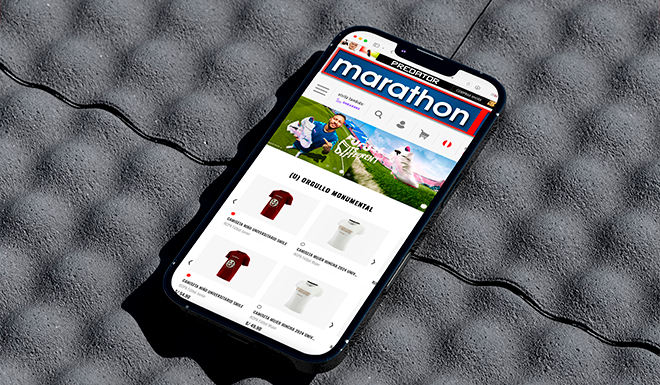- Inicio
- Blog
- Data Strategy
- The Growing Importance of 1PD for Marketing Strategies
The Growing Importance of 1PD for Marketing Strategies
In the changing marketing landscape, where strategies are shaped by data more than ever, a new player has emerged to lead the charge: First Party Data (1PD). As companies seek deeper connections with their audiences and strive for more effective segmentation, the importance of 1PD cannot be understated. In this era of personalized experiences and heightened privacy concerns, harnessing the potential of 1PD has become a crucial aspect of formulating successful marketing strategies.
Gone are the days when generic mass marketing dominated; today's consumers expect personalized interactions that resonate with their individual preferences and needs. This shift has not only led marketers to deepen their understanding of their customers, but has also driven the growing importance of 1PD. In this article, we will explore the various dimensions of 1PD and its pivotal role in redefining marketing strategies.
Join us on a journey into the heart of data-driven marketing and let's discover the power of first-party data. From its definition and collection methods to its role in enhancing personalization and building trust, we'll break down the nuances that make 1PD an indispensable asset. As we walk through the following sections, you'll gain insights into how companies can leverage 1PD to create lasting connections, address privacy concerns and chart a path to marketing success in an ever-changing digital landscape.
Understanding First Party Data (1PD)
In the modern digital age, data is the foundation of effective marketing strategies, and among the various types of data available, First Party Data (1PD) stands out as a key pillar. At its core, 1PD refers to information collected directly from your own audience, customers and users. This data is voluntarily shared by individuals through their interactions with your brand's website, apps, social media and other touch points. Unlike third-party data, which is acquired from external sources, 1PD comes directly from the source: your own consumers.
Part One Data Types:
1. Behavioral Data: This covers a wide range of actions your users take, such as the pages they visit, the products they view and the links they click. Behavioral data helps you understand your users' preferences, interests and goals, allowing you to tailor your marketing efforts accordingly.
2. Transactional Data: Details of customer purchases, order history and transactional interactions provide valuable information about buying patterns and preferences. This information helps refine product recommendations and optimize cross-selling and upselling strategies.
3. Demographic and Psychographic Data: Information about your audience's age, gender, location, interests and lifestyle helps you segment your market more effectively. This segmentation allows you to create targeted campaigns that resonate with specific groups.
4. Interaction Data: This includes data from customer service interactions, surveys, feedback forms and other direct communications. Understanding how customers relate to your brand on a personal level can help tailor engagement strategies and improve customer satisfaction.
The Importance of First Party Data:
Collecting and using 1PD is a strategic advantage for several reasons:
1. Accuracy and Reliability: Because 1PD comes directly from your audience, it tends to be more accurate and reliable compared to third-party data, which may be outdated or incomplete.
2. Personalized Marketing: With a clear understanding of user behaviors, preferences and interactions, you can create highly personalized marketing campaigns that resonate with each individual customer, fostering stronger connections.
3. Audience Awareness: 1PD offers a window into the minds of your audience, providing actionable insights for product development, content creation and overall business strategies.
4. Compliance and Trust: In an age where data privacy is paramount, relying on 1PD improves compliance with regulations such as GDPR and CCPA. Using data that users voluntarily provide builds trust and transparency.
As the digital ecosystem continues to evolve, 1PD has emerged as an essential tool for marketers looking to thrive in this environment. The ability to collect, analyze and act on data collected directly from customers empowers companies to build meaningful relationships and deliver personalized experiences. In the following sections, we will explore how harnessing the potential of 1PD can enhance personalization, address privacy concerns, and change the way marketing strategies are formulated.
Improved Personalization and Customer Experience
In an era where consumers are overwhelmed by marketing messages from all directions, personalization has become the key differentiator that sets successful brands apart. First Party Data (1PD) plays a pivotal role in unlocking the full potential of personalization and elevating the customer experience to unprecedented heights.
Creation of Tailor-made Experiences:
1PDs are a treasure trove of information about individual preferences and behaviors. By analyzing this data, marketers gain a complete understanding of each customer's journey, allowing them to create tailored experiences at every touchpoint. Whether it's a personalized email that suggests products based on past purchases or a website homepage that displays content aligned with a user's interests, 1PD empowers marketers to curate interactions that feel unique and relevant to each individual.
Hyper-targeted campaigns:
The granular nature of 1PD enables the creation of hyper-targeted marketing campaigns. By segmenting your audience based on their behaviors and characteristics, you can deliver messages that resonate deeply. For example, an e-commerce company can send promotions to customers who have abandoned their shopping carts, along with personalized incentives to nudge them to complete the purchase. These campaigns not only drive conversions, but also demonstrate that your brand understands and caters to individual needs.
Predictive Analysis and Recommendations:
Leveraging 1PDs allows companies to use predictive analytics and recommendation algorithms. By analyzing historical behaviors and patterns, you can predict future actions and preferences. This capability allows platforms to deliver relevant content or product recommendations in real time, improving the overall user experience. Streaming services like Netflix and music platforms like Spotify have mastered this technique, offering personalized content suggestions that keep users engaged and satisfied.
Building Emotional Connections:
Personalization goes beyond transactional interactions; it's about forging emotional connections. When customers receive messages or offers tailored to their specific interests, it conveys a sense of caring and understanding. This, in turn, fosters brand loyalty and positive perception. By providing consistent experiences that are tailored to individual needs, you transform customers into brand advocates who voluntarily disclose their exceptional interactions.
In essence, the role of 1PDs in improving personalization and customer experience cannot be overstated. The ability to leverage this data allows marketers to go beyond generic marketing approaches and connect with customers in a deeply personal way. As we delve deeper into the world of Part One Data, the next section will address the critical issue of how to navigate privacy concerns and build trust, a necessary step in maintaining successful customer relationships in the digital age.
Navigating Privacy Concerns and Building Trust
As the digital landscape continues to evolve, the issue of data privacy has taken center stage. Consumers are increasingly aware of how their data is collected and used, which has led to heightened privacy and security concerns. In this context, First Party Data (1PD) offers a unique advantage by enabling companies to navigate these concerns and build trust with their audience.
Transparency and Consent:
One of the main ways 1PD addresses privacy concerns is through transparency and consent. When users provide their data voluntarily, knowing exactly how it will be used, a foundation of trust is established. By clearly delineating data collection practices and obtaining explicit consent, brands can foster a sense of security among their customers.
Regulatory Compliance:
With regulations such as the General Data Protection Regulation (GDPR) and the California Consumer Privacy Act (CCPA) in place, companies must handle customer data responsibly. Using 1PD allows companies to comply with these regulations, as data is obtained directly from individuals who have opted in. This reduces the risk of using non-compliant or questionable data sources by accident.
Differentiation of Third Party Data:
In contrast to third-party data, which often comes from external sources and lacks transparency, 1PD originates directly from interactions with your brand. This distinction is important for building trust. Consumers are more comfortable sharing data with a brand they have a direct relationship with, rather than with intermediaries or unknown entities.
Data Minimization and Security:
1PD collection encourages a practice of data minimization: collecting only the information necessary to achieve specific objectives. This approach aligns with privacy principles and demonstrates respect for users' data. In addition, because you control the data collection process, you can implement robust security measures to protect sensitive information, strengthening trust among users concerned about data breaches.
The Confidence Advantage:
Building trust is not just a legal or ethical obligation; it is a competitive advantage. Brands that prioritize user privacy and demonstrate responsible data management practices are more likely to earn the loyalty of their audience. Trust forms the foundation of strong, long-lasting customer relationships. When customers feel that their data is treated with care and respect, they are more inclined to engage, share feedback and even promote the brand.
In short, 1PDs offer a solution to the privacy concerns that have arisen in today's data-driven world. By interacting directly with your audience and practicing transparent and responsible data collection and use, companies can create an environment of trust. In the final section, we will highlight the importance of integrating First Party Data into broader marketing strategies and the path forward for companies looking to leverage this valuable resource.
Conclusion
The journey into the universe of First Party Data (1PD) has revealed a profound shift in the landscape of modern marketing strategies. As companies adapt to the ever-evolving digital ecosystem, the importance of 1PD has gained prominence, redefining how brands connect with their audiences and navigate the complexities of data-driven campaigns.
From understanding the nature of 1PD to leveraging its potential to enhance personalization and build trust, we have explored the many dimensions that make 1PD a valuable asset. The ability to create personalized interactions, hyper-targeted campaigns and predictive recommendations has enabled brands to forge meaningful connections that resonate on a personal level.
In an era marked by growing privacy concerns, 1PD offers a way forward. By focusing on transparency, obtaining explicit consent and complying with regulatory standards, companies can delicately balance data usage and user trust. As trust becomes a distinguishing factor, brands that prioritize ethical data handling practices are well positioned to cultivate audience loyalty and stand out.
The journey of integrating 1PD into marketing strategies doesn't end here. Instead, it ushers in a new era where companies use their own data to make informed decisions, drive innovation and elevate customer experiences. By leveraging the insights provided by 1PD, brands can anticipate market trends, respond to customer needs and adapt strategies that drive sustainable success.
As technology continues to evolve and consumer expectations change, the importance of 1PD will only continue to grow. By embracing this evolution, companies have the opportunity to not only enhance their marketing efforts, but also redefine their relationship with customers. By recognizing the power of First Party Data, you are positioning your brand at the forefront of a data-driven future, where insights, personalization, trust and success intertwine to create exceptional marketing strategies.



